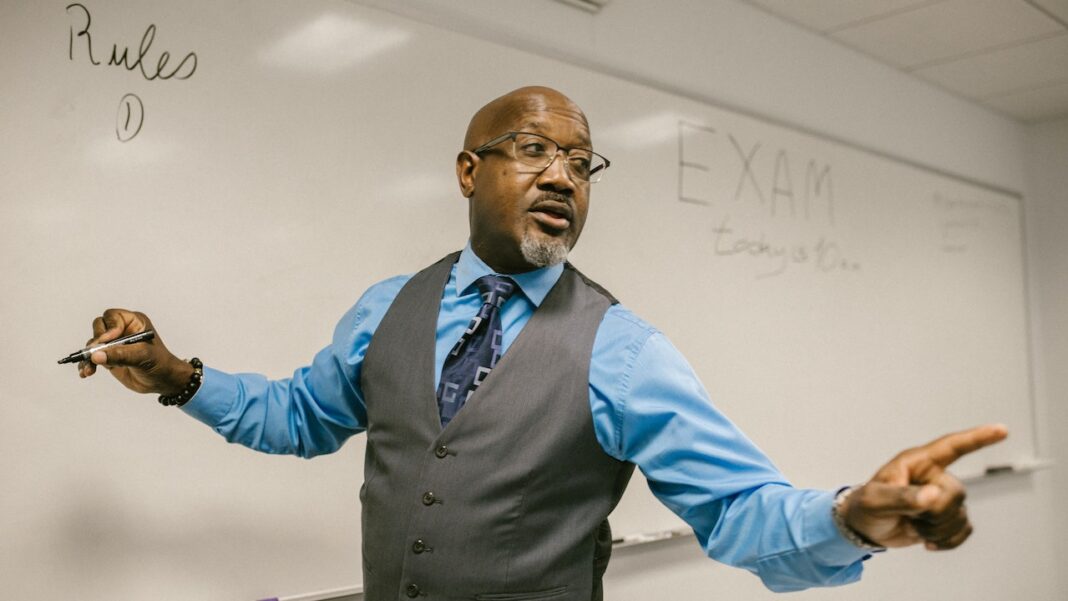Teacher education is an essential aspect of the American education system. As the first line of contact between students and the education system, teachers play a critical role in shaping the future of students and the nation. Therefore, it is imperative that teacher education programs in the United States prepare aspiring teachers to meet the challenges and opportunities of the 21st century.
Table of contents
Introduction
The United States has a long history of teacher education, dating back to the colonial period when aspiring teachers received training through apprenticeships. However, the field of teacher education has undergone significant changes in recent years, driven by changes in the broader education landscape, including new technologies, increasing diversity in schools, and changing economic and political conditions. Despite these changes, teacher education in the United States continues to face significant challenges, including a lack of consistency in program quality, limited clinical experience, and inadequate preparation for diverse student populations.
Current Challenges in Teacher Education
- Lack of Consistency in Program Quality: One of the major challenges in teacher education in the United States is the lack of consistency in program quality. According to the National Council on Teacher Quality (2017), there is significant variability in the quality of teacher preparation programs across states and institutions. This variability has led to concerns about the ability of these programs to adequately prepare aspiring teachers for the demands of the modern classroom.
- Limited Clinical Experience: Clinical experience, also known as student teaching, is a critical component of teacher education. However, many teacher education programs in the United States provide limited opportunities for aspiring teachers to gain hands-on experience in the classroom. This lack of practical experience can limit the ability of these programs to prepare aspiring teachers to meet the unique needs of students and schools.
- Inadequate Preparation for Diverse Student Populations: The American education system is becoming increasingly diverse, with students from a range of cultural, linguistic, and socioeconomic backgrounds. However, many teacher education programs in the United States do not adequately prepare aspiring teachers to meet the needs of these diverse student populations (Loeb & Wyckoff, 2017).
Opportunities for Improvement in Teacher Education
- Use of Technology: The integration of technology into the classroom has become increasingly important in recent years, and teacher education programs must prepare aspiring teachers to effectively integrate technology into their teaching practices. This includes providing opportunities for aspiring teachers to gain hands-on experience with a range of technology tools and resources.
- Evidence-Based Practices: Evidence-based practices, such as the use of formative assessments and data-driven decision making, have become increasingly important in the field of education. Teacher education programs can seize the opportunity to prepare aspiring teachers to use these practices by incorporating them into their curriculum and providing opportunities for hands-on experience.
- Collaboration with Schools and Communities: Effective teacher education programs must involve close collaboration with schools and communities. This includes opportunities for aspiring teachers to engage in real-world experiences in schools, such as shadowing experienced teachers, and working with students and families in the community.
Conclusion
In conclusion, teacher education in the United States faces many challenges, including a lack of consistency in program quality, limited clinical experience, and inadequate preparation for diverse student populations. However, there are also many opportunities for improvement, including the use of technology, the emphasis on evidence-based practices, and greater collaboration with schools and communities. To ensure that teacher education programs are effective in preparing future teachers to meet the demands of the 21st-century classroom, it is important for policymakers, institutions, and educators to work together to address these challenges and seize these opportunities.
References
- Darling-Hammond, L. (2017). Teacher Education Around the World: What Can We Learn from International Practice?. Routledge.
- National Council on Teacher Quality. (2017). Teacher Prep Review 2017. National Council on Teacher Quality.
- Loeb, S., & Wyckoff, J. (2017). Preparing Effective Teachers for Diverse Students: Opportunities and Challenges. In Handbook of Research on Multicultural Education (pp. 3-19). Routledge.



 For all latest articles, follow on Google News
For all latest articles, follow on Google News